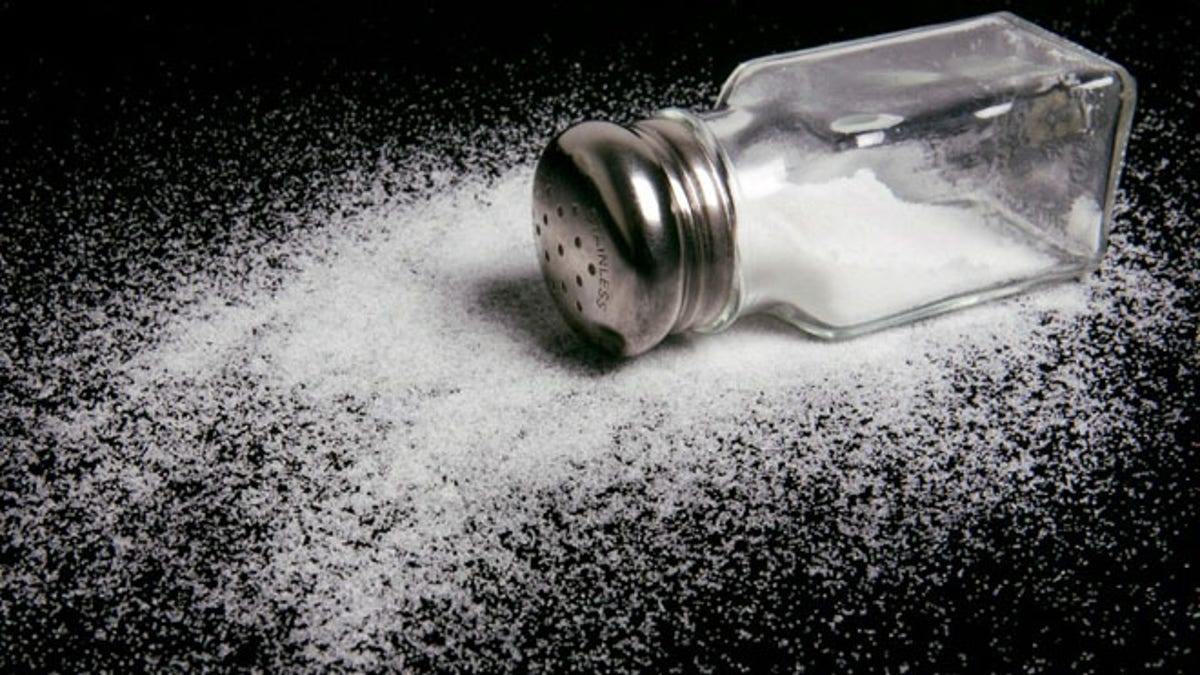
(iStock)
Socks, buttons, and significant others: many things in life are (thankfully) replaceable. And as it turns out, the same can be true in the world of cooking, especially with high-sodium ingredients.
Nine out of 10 Americans need to lower their sodium intake, and many more want to eat less prepared foods, so it's clear that eating healthy is a number-one priority for many people and is more important now than ever. Reducing sodium not only cuts some calories from your diet but helps lower your blood pressure, a leading cause of cardiovascular disease.
Thankfully, cutting sodium out of your diet is really not as challenging as you may think. Even better, there’s ways to create flavor-substitutes that will satiate even the zaniest salt-craver’s taste buds. Here we’ve gathered some of the biggest sodium culprits that you’d find on the grocery store shelves, and come up with creative substitutions to take their place. In other words, we’re helping you dial back your salt intake while still enjoying your favorite recipes. Here are five of the ten substitutes.
Soy and Teriyaki Sauce and Miso Paste Substitute
When a dish calls for soy, fish, oyster, or any other Asian-inspired sauce, look no further than your friend molasses. When combined with unseasoned rice-wine vinegar and other seasonings, the molasses mixture provides a satisfying replacement for marinades, mixes, and even teriyaki sauce — keeping the dark look and fermented taste of the original while cutting down the sodium.
Soy Sauce: More than 1,000 milligrams sodium per tablespoon
Teriyaki: 690 milligrams sodium per tablespoon
Oyster: 490 milligrams sodium per tablespoon
Molasses: 10 milligrams sodium per tablespoon, depending on brand
Bread Substitute
According to the CDC, bread is one of the top sodium culprits, clocking around 80 milligrams to 230 milligrams of sodium per slice. Which, when you consider breakfast and sandwiches and even snacks before dinner, can quickly add up throughout the day. Although no-salt-added bread does exist, use this as an excuse to think outside of the breadbox. Wrap your next sandwich in corn tortillas, strong leafy greens, or even large cabbage leaves.
White Bread: 80 to 230 milligrams per slice
Corn tortilla: 5 milligrams sodium per tortilla, depending on brand
Collard Greens: Approximately 10 milligrams sodium per leaf
Milk Substitute
Most milk products — hemp and soy included — can contain upward of 100 milligrams of sodium per cup.That may fit within most people’s dietary limits, but it can also add up throughout the day. If you’re looking for a lower-sodium switch, coconut milk (now in cartons!) works well for cereal, curries, and even your morning cup of joe.
2 Percent Milk: 115 milligrams sodium per cup
Coconut Milk: 15 milligrams sodium per cup, depending on brand
Mayonnaise Substitute
Mayonnaise will contain more than 100 milligrams of sodium per tablespoon, which means a hearty slather can quickly become a high-sodium spread. In its place, you have a few low-sodium options. The first is soy-based yogurt, which is both low in sodium and creamy enough for coleslaws, chicken salads, and sandwiches. Another one is sodium-free silken tofu, which when blended with salt-free garlic powder and other strong spices, makes an easy homemade option. And lastly, certain hemp seed oil-based mayonnaises not only have 5 milligrams of sodium per tablespoon, but are also starting to show up on grocery store shelves.
Mayonnaise: 100 milligrams sodium per tablespoon
Plain Soy Yogurt: 15 milligrams per 6-ounce container, depending on brand
Silken Tofu: 0 milligrams sodium, depending on brand
Hemp Seed Oil Mayonnaise: 5 milligrams per tablespoon, depending on brand
Canned Broth and Stock Substitute
When a recipe calls for this high-sodium ingredient, put down the can and whip up some quick mushroom broth. After only 30 minutes of boiling these fungi, dried or fresh, you’ll end up with an earthy broth that’s full of natural umami flavor (not salt). Which means a great low-sodium base for soups, stews, and stuffing.
Canned Chicken Broth, Ready to Serve: 860 milligrams sodium per cup
Mushroom Broth: Practically sodium free (6 milligrams of sodium per cup cooked shiitake mushrooms)
More from The Daily Meal
11 Essential Tailgating Tools From Your Kitchen
Cooking Oils, Simplified
How to Make Your Own White Castle Slider at Home
10 Healthy and Delicious Snacks for After-School Sports




















